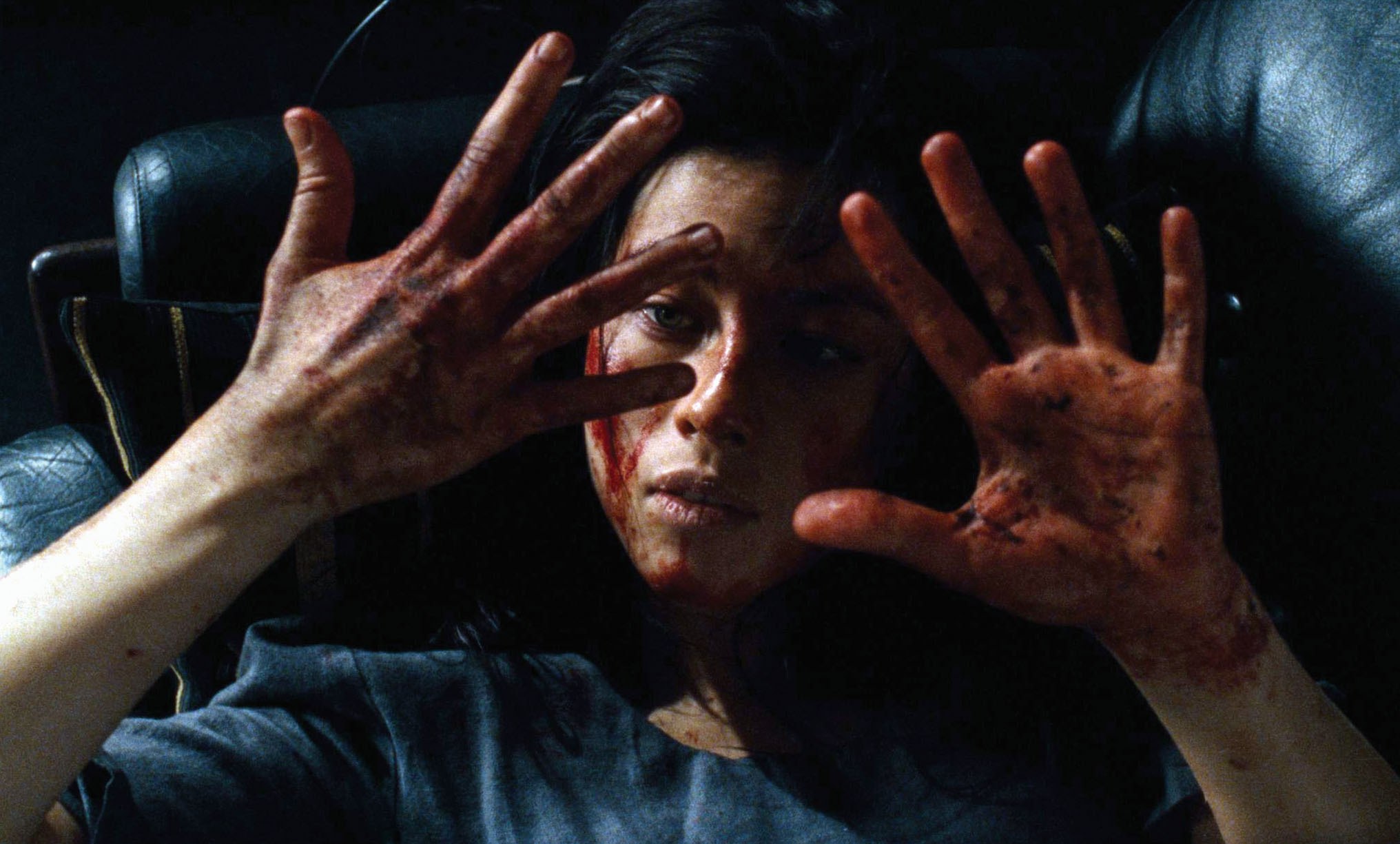Martyrs (2008)

“Martyrs,” directed by Pascal Laugier and released in 2008, is a French horror film that stands as a striking example of the genre’s capacity to provoke thought and challenge the boundaries of conventional cinema. Renowned for its unflinching depiction of violence and its exploration of deep philosophical themes, “Martyrs” offers a harrowing journey into the nature of human suffering and the quest for transcendence.
The film begins with a traumatic and brutal prologue set in the 1970s, where a young girl named Anna is found suffering from severe malnutrition and abuse. She is discovered by a compassionate woman, who takes her in and provides the care she needs. As the film progresses, we learn that Anna’s ordeal is just the beginning of a much more profound and disturbing narrative.
The central story revolves around two young women, Anna and Lucie, who have been friends since childhood. Their relationship is shaped by their shared traumatic past, and as adults, they are haunted by the trauma of their experiences. The film’s narrative takes a dark turn when Lucie, driven by unresolved anger and vengeance, leads Anna to a house where a series of violent and shocking events unfold. This confrontation reveals the existence of a secret society dedicated to uncovering the secrets of human suffering through horrific means.

“Martyrs” is notable for its intense and graphic portrayal of violence. The film does not shy away from depicting extreme acts of brutality, and its unrelenting approach to violence serves both as a narrative device and a commentary on the nature of suffering. The film’s depiction of violence is not gratuitous but is intended to evoke a visceral reaction and provoke deeper contemplation about the purpose and impact of suffering.
At its core, “Martyrs” is a philosophical exploration of the meaning of pain and suffering. The film delves into the idea that suffering can lead to a form of transcendence or enlightenment. The secret society in the film seeks to understand the nature of human suffering by subjecting individuals to extreme pain, believing that this suffering will reveal profound truths about existence and the afterlife. This notion of suffering as a pathway to enlightenment is central to the film’s thematic exploration and raises questions about the ethics and motivations behind such extreme practices.

The character development in “Martyrs” is both compelling and unsettling. Anna and Lucie are portrayed with a depth of emotion and vulnerability that adds to the film’s emotional impact. Their experiences and relationships are depicted with a raw intensity that draws the audience into their world. The performances by Morjana Alaoui as Anna and Mylène Jampanoï as Lucie are noteworthy for their commitment to conveying the psychological and emotional complexities of their characters.
Pascal Laugier’s direction is crucial in creating the film’s harrowing atmosphere. His ability to balance the film’s brutal content with its philosophical themes demonstrates a sophisticated approach to horror filmmaking. Laugier’s direction ensures that the film’s extreme content serves a greater purpose, contributing to its exploration of the human condition rather than merely shocking the audience.

The film’s cinematography and production design contribute to its unsettling tone. The stark and often claustrophobic settings enhance the sense of dread and entrapment experienced by the characters. The use of lighting and camera work further accentuates the film’s dark themes, creating a visually striking and immersive experience that complements its narrative.
“Martyrs” is a film that challenges conventional notions of horror and pushes the boundaries of the genre. Its exploration of suffering, transcendence, and the human condition is both profound and disturbing. The film’s willingness to confront uncomfortable and taboo subjects has earned it a place in the annals of thought-provoking horror cinema.
In conclusion, “Martyrs” (2008) is a bold and unsettling film that delves into the darkest corners of human experience. Through its intense portrayal of violence, philosophical exploration of suffering, and compelling performances, the film stands as a significant and thought-provoking entry in the horror genre. It invites viewers to reflect on the nature of pain and the pursuit of transcendence, making it a challenging yet compelling cinematic experience.











